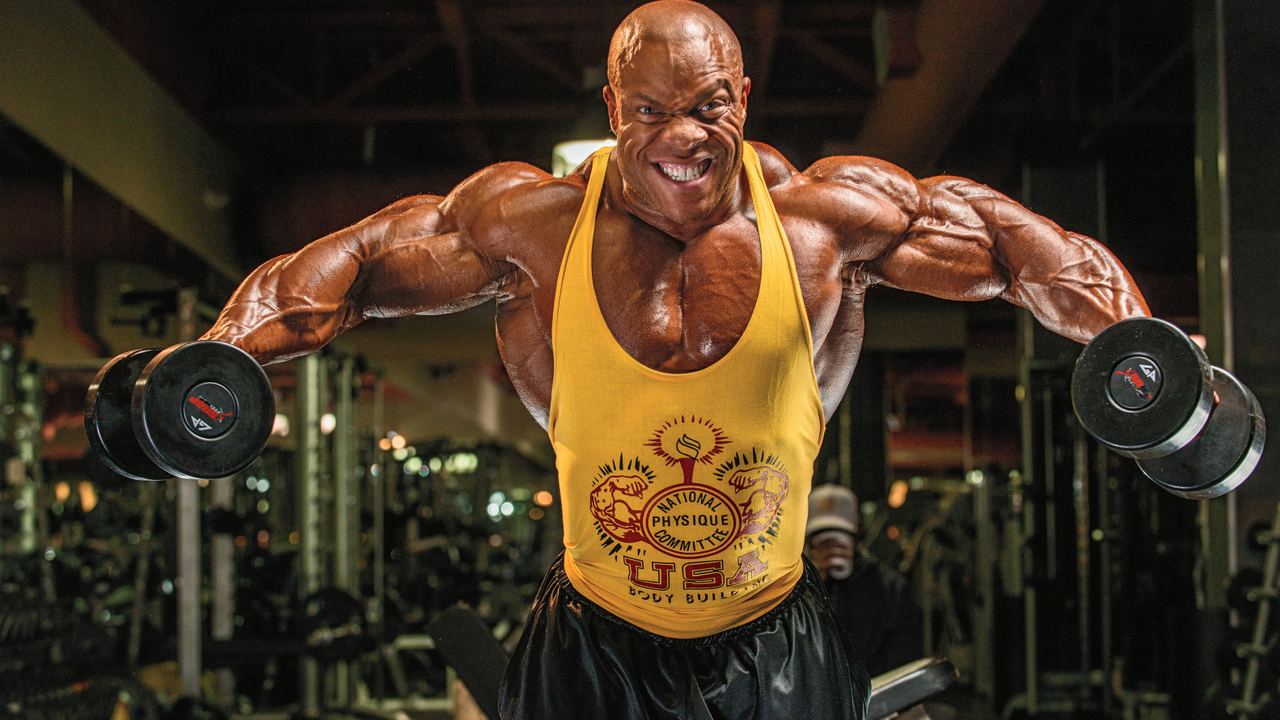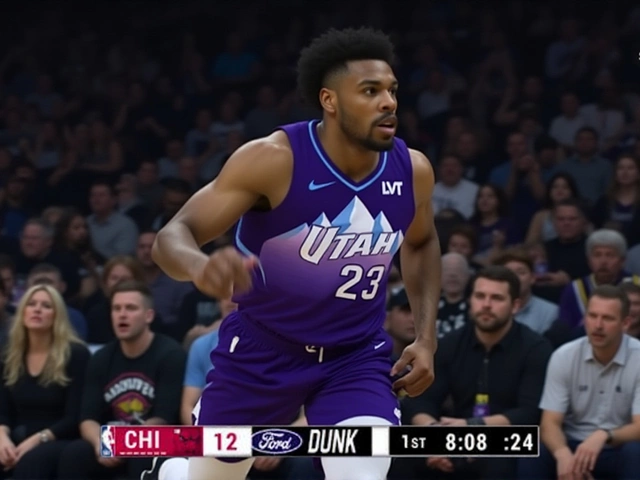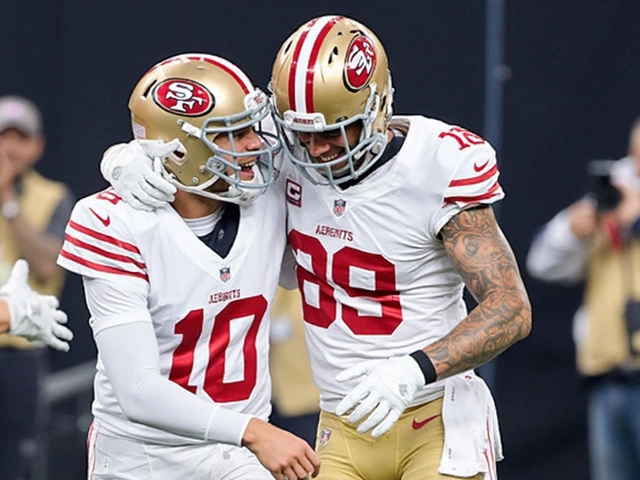
Behind the Muscle: The Intricacies of Sponsorships
Only a few years ago, I found myself embarking on my own fitness journey and willing to delve into the realm of muscle development. The fascinating world of bodybuilding had always intrigued me as regular guy who enjoyed staying fit. One thing that I was incredibly curious about was the financial side of this glamorous fit lifestyle. How much does a bodybuilder earn? Are those robust muscles an avenue to a comfy life? The simple answer is yes and no, and it heavily hinges on sponsorships.
Bodybuilding as an endeavor is financially demanding. It goes beyond grueling gym schedules, strict dietary regimes, or sleep cycles. Think about top-quality supplements, personal coaching, gym subscriptions, participation fees for competitions, attire and all. Of course, that doesn’t even incorporate the indirect costs such as time and energy. Most bodybuilders can't afford to meet all of these expenses on their own, hence the need for sponsorship.
Understanding the Dynamics of Bodybuilding Sponsorship
Sponsorship can serve as a lifeline for bodybuilders. Sponsors are essentially financiers who support bodybuilders, providing financial assistance relating to training and competition expenses. In return, bodybuilders showcase the sponsors' brands on their apparel, equipment, and in promotional activities. It's essentially a well-rounded symbiotic relationship. And just like any relationship, its success is determined by numerous factors.
Sponsors base their decisions on a wide array of factors. Among the most significant elements that they consider before sponsoring a bodybuilder are the athlete's reputation, competition records, physical appearance, and social media following.
Assessing the Financial Range of Sponsorship
The financial range of sponsorship in bodybuilding is quite broad. The sponsors generally comprise of companies that produce fitness-related products like supplements, clothing, and gym equipment. These companies seek out successful bodybuilders who have an engaging social media presence to represent their brands. In simple terms, the more visibility and influence a bodybuilder has, the higher the sponsorship package they can command.
The exact numbers are hardly ever disclosed, but after prodding my resources within the industry, I managed to garner some insight. Sponsorship can range anywhere from a few hundred dollars a month, for up-and-coming competitors, to six-figure salaries for the top echelon of bodybuilders, inclusive of perks like covered traveling expenses for global competitions, product endorsements, and more.
Pushing The Boundaries: Online Following & Sponsorship
Today, a considerable chunk of bodybuilding sponsorship earnings is tethered to online influence. The rise of social media has significantly shifted the metrics of influence in the bodybuilding world. An era of digital bodybuilding influencers has blown open new frontiers for sponsorship earnings.
Social media platforms like Instagram, YouTube, Twitter, or Facebook have become the new gathering spots for fitness enthusiasts. Bodybuilders with impressive followings on these platforms offer brands a platform for a far-reaching and dedicated audience. It's not all about winning contests anymore. With a sizeable online following, even bodybuilders who aren't frequent winners in major competitions can land lucrative sponsorships.
Diversification: Leveraging Sponsorship for Multiple Revenue Streams
Smart bodybuilders really know how to get their pump on by diversifying their revenue streams. Sponsorship is often the stepping stone to other sources of income. Apart from the sponsorship deals, bodybuilders realize they can further monetize their fitness prowess and large following through various ventures.
Endorsement, fitness modeling, launching fitness programs, online coaching, selling merchandise, or acquiring partners for supplement lines are some of the common strategies to increase income. While being sponsored opens the door to these opportunities, a smart mindset and strategic planning are required to effectively convert them into substantial income streams.
Nailing down a Sponsorship: Tips and Tricks
If you're an aspiring bodybuilder intrigued by the world of sponsorships, I've some tips for you. From personal experience and insights gathered from professional bodybuilders, these might just bump up your sponsorship game.
Firstly, it's all about establishing and showcasing your personal brand. Be unique and authentic. Quite an essential aspect for attracting sponsors is visibility. Establish a strong presence on social media platforms where fitness enthusiasm thrives. Next, consistency is key in every step. Regular workouts, a committed diet, and building a caring community around your fitness journey build the basis for higher prospects of drawing in sponsors.
Reality Check: The Underbelly of Bodybuilder Sponsorships
It's not always sunshine and rainbows in the world of bodybuilding sponsorships. For every success story, there are numerous untold tales of bodybuilders struggling to secure substantive sponsorships. Competitive bodybuilding can be an uncertain sport. One may experience fluctuating income levels, unstable sponsor commitments, and spotty access to the right industry networks. My advice is to have a good backup for the tough times. Don’t fully rely on bodybuilding for your livelihood until you become a well-established competitor.
Wrapping It Up
Bodybuilding sponsorships provide a much-needed revenue stream for athletes in the sport, with the amount of money made from such sponsorships varying depending on a variety of factors. It's definitely not a cakewalk, but when done right, sponsorships can indeed launch a bodybuilder's financial success. Therefore, while bodybuilding might provide an avenue to a prosperous lifestyle, it necessitates an intelligent approach, consistent work, and a savvy personal brand to create a financially successful career. After all, it's not just about pumping iron but pumping your brand too!
More Articles

Keyonte George’s Clutch Three Wins It for Jazz in 150-147 Double OT Thriller Over Bulls
Keyonte George hit a game-winning three-pointer with 0.8 seconds left to lift the Utah Jazz over the Chicago Bulls 150-147 in double overtime on November 16, 2025, as Josh Giddey recorded his 10th triple-double as a Bull.

San Francisco 49ers 26–21 Saints: Week 2 grades as Mac Jones throws 3 TDs and defense delivers
The San Francisco 49ers moved to 2-0 with a 26-21 win over the Saints at the Superdome. Backup QB Mac Jones threw three touchdowns, while the defense, led by Nick Bosa, kept Spencer Rattler under pressure. Bryce Huff forced a fumble, and Upton Stout recorded his first career sack. We break down the grades, key numbers, and what the victory says about San Francisco’s depth.

Holly Wheeler Vanishes in Stranger Things Season 5 as Vecna Exploits Her Trauma
Holly Wheeler, portrayed by Anniston and Tinsley Price, vanishes in Stranger Things Season 5 after being manipulated by Vecna into entering the caves he fears. Her disappearance reveals deeper ties between trauma, innocence, and the Upside Down's origins.
